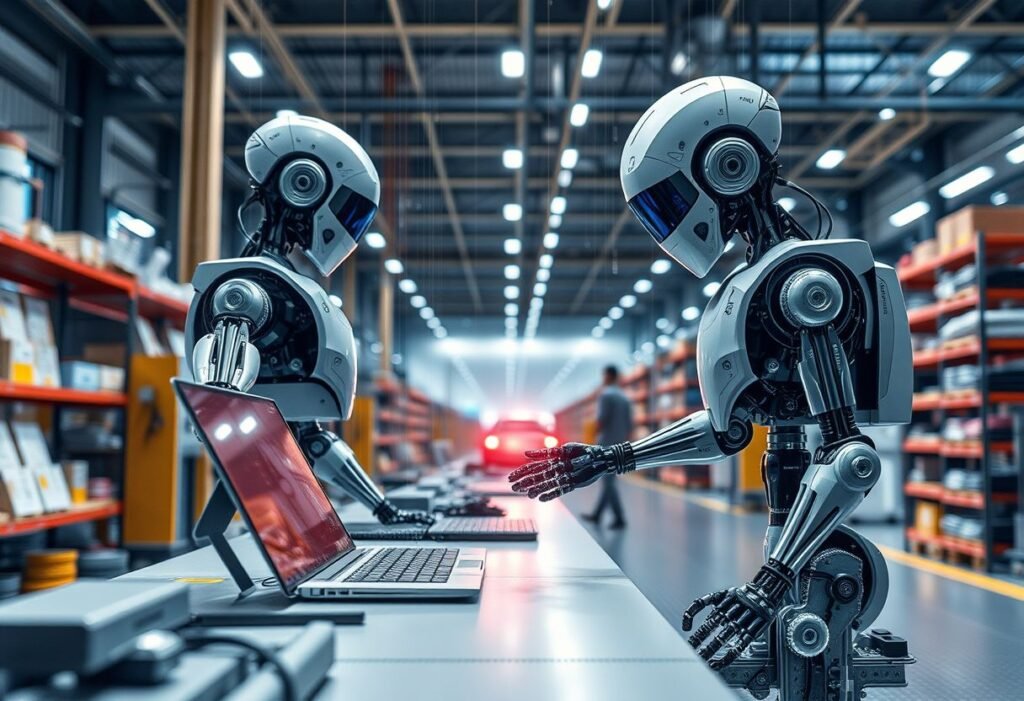The impact of automation on the workforce is transforming industries and redefining the nature of work, central to innovation today.
The Role of Automation in Modern Work Paradigms
Automation has evolved significantly with advancements in technology, leading to considerable changes in various industries. It enhances productivity and efficiency while reducing operational costs. As organizations increasingly adopt automation, workers are challenged to adapt their skills to thrive in a technology-driven environment. This shift necessitates a profound transformation in training and education to prepare the workforce for these new demands. Additionally, as jobs become more specialized due to automation, the need for continuous learning increases, fostering a culture of innovation.
The Relationship Between Automation and Job Creation
While there are valid concerns about automation displacing jobs, history shows that it can also create new employment opportunities. As mundane tasks are automated, workers can focus on higher-level responsibilities that require critical thinking and creativity. Industries such as software development, AI maintenance, and advanced data analytics are witnessing high demand for skilled professionals. This transition encourages a shift in job roles, promoting innovation in fields that were previously underserved by human resources. A well-structured approach to workforce retraining can ensure that workers are equipped for these emerging roles.
Automation’s Impact on Skill Requirements
The advent of automation necessitates changes in skill requirements across various sectors. As tasks become increasingly automated, the demand for technical skills, such as programming and data analysis, rises. Conversely, soft skills—such as communication, problem-solving, and emotional intelligence—are becoming more critical as they complement automated processes. Organizations are beginning to realize the importance of cultivating a hybrid workforce, combining technical proficiency with interpersonal skills, to foster innovation and adapt to the evolving nature of work.
Innovation Through Enhanced Collaboration with Automation
Automation is not merely about replacing humans but enhancing their capabilities. Collaborative technologies enable workers to interact more effectively with automated systems, leading to innovative outcomes. For instance, robotic process automation (RPA) can handle repetitive tasks, allowing human employees to dedicate more time to strategic initiatives. This synergy can lead to improved business models, enhanced customer service, and more engaging product development, demonstrating how automation drives innovation within teams and organizations.
Challenges and Ethical Considerations of Automation
The rise of automation brings forth numerous challenges and ethical questions concerning your workforce. Issues such as job displacement, income inequality, and the digital divide must be addressed proactively. Policymakers and businesses must collaborate to create frameworks that support affected workers through retraining programs and social safety nets. By ensuring that all workers have access to education and resources, the potential negative impacts of automation can be mitigated, allowing innovation to thrive without leaving individuals behind.
The Future of Workforce Innovation in the Age of Automation
Looking forward, the workforce landscape will be increasingly defined by automation and innovation. Trends indicate that as technology continues to evolve, so will job roles and required skills. Employers must be proactive in embracing change and investing in workforce development strategies that focus on lifelong learning and adaptability. By prioritizing innovation and equipping workers with the necessary resources and training, organizations can create a resilient workforce prepared to navigate the demands of the future.
Disclaimer: The views expressed in this article are for informational purposes only and do not constitute professional advice on workforce automation.





















